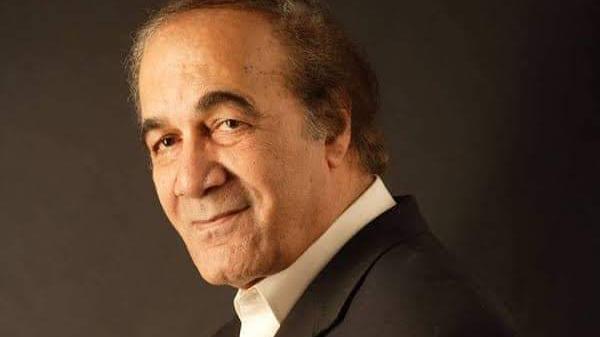Mahmoud Yassin, an emblem of Egyptian cinema, dies aged 79
14 October, 2020

Mahmoud Yassin, just about the most prolific actors in the annals of Egyptian cinema, has died at age 79.
Yassin passed away in the first hours of Wednesday, October 14, after struggling for a long time with an undisclosed illness.
His son, Amr Mahmoud Yassin, announced the actor’s death with a post on his social media pages. “He was an excellent star but also an excellent father,” Amr wrote within an Instagram post, plus a picture of his father with some of the awards he had received across his four-decade career.
Tributes to the Egyptian star started out pouring on to social media from fans and celebrities seconds following the announcement of his death.
Tunisian singer Latifa responded to Amr's Instagram post by mourning the actor’s passing, writing: “May God protect him and make him a good example for all those.”
“I mourn with great sadness and sorrow the fantastic artist Mahmoud Yassin, who passed on today,” Ahmed Shobier, a former goalkeeper who played for the Egyptian national team, wrote. “I ask the Almighty to bless him with the breadth of his mercy.”
“We’re gonna miss you,” Soha Ahmed, a fan, wrote on Twitter, adding a broken heart emoji. “Another legend gone this season. Rest in peace.”
Who was simply Mahmoud Yassin?
Dubbed "the first young man of the screen", Yassin was born in 1941 in Port Said, a city in the north-east of Egypt, sprawled along the Mediterranean coast.
After finishing his senior high school education, Yassin visited Cairo to join the School of Law at Ain Shams University. However, even then he was intent on becoming an actor and took part in a competition at the National Theatre, where he won first place in three consecutive qualifiers. Meanwhile, after graduating in 1964, he received a work opportunity in his home town but refused the federal government position towards pursuing a career in theatre.
He started his journey as a stage actor that same year, getting involved in the play The Dream, directed by Abdulrahim Al Zarqani. Over another couple of years, Yassin presented more than 20 plays at the National Theatre, including Layla wa Majnun, Khedive and Suleiman al Halabi.
Yassin made the switch to cinema in 1968, taking on small roles in a series of films like the Man Who Lost His Shadow, directed by Kamal El Sheikh (dubbed the Hitchcock of Egyptian cinema) and The Trial, directed by Salah Abu Seif, who is regarded as the godfather of Neorealist cinema in Egypt in the 1950s and 1960s.
His first chance to star in a film came in 1970, when he took the leading role in the Hussein Kamal-directed film We USUALLY DO NOT Sow Thorns opposite Shadia, who at that time had already established herself as you of the main film actors in Egypt.
The film made Yassin children name over the Arab world and he soon proved himself to be an unstoppable force in the cinema industry, starring in more than 50 films through the entire next decade. By the finish of his life, his filmography would boast more than 150 titles.
Some of his most critically acclaimed works are the 1975 comedy Love Sweeter Than Love, Climbing to the Abyss, a 1978 biopic about Heba Selim who worked for the Mossad along with her fiance in the post-1967 war era, and The Island, a 2007 action film in regards to a community living on an island with their own established group of rules, ethics and customs.
The last film he appeared in was the 2012 comedy Grandpa Habibi.
Since then, Yassin has been famously reclusive. Rumours of his death have routinely circulated before few years, most recently in March, when actor Ashraf Zaki, head of the Actor’s Syndicate in Egypt, had release a a statement saying the news headlines was unfounded.
However, now with Yassin's son confirming his death, it appears that the Egyptian cinema industry has, indeed, lost among its most prominent vanguards and emblems of its post-Golden Age.
Source: www.thenationalnews.com
TAG(s):
